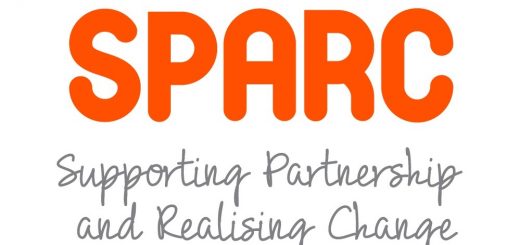Marie
Sklodowska-Curie Individual Fellowships (IF)
Overview:
On 11th April 2019, the European Commission will
open its call for applicants to the Marie
Sklodowska-Curie Individual Fellowships (IF) scheme– both European Fellowship and Global Fellowship. In advance of this University College Dublin (UCD) is
issuing a call for potential applicants who would like to partake in an
internal pre-selection process. This process will enable potential applicants
to: secure a host mentor and develop a competitive proposal. The process will
be conducted by their proposed host School or Centre at UCD. The MSCA-IF call
will close on the 11th September 2019.
Eligibility:
Potential candidates should ensure that they fulfil
the
conditions
of eligibility (pp 9-15), principally the ‘Mobility Rule’.
“The researcher cannot have resided or carried out his/her main
activity (work, studies, etc.) in the country of the beneficiary for more than
12 months in the three years immediately before the call deadline”.
Prospective applicants can either be:
|
Persons recently arrived at UCD/in Ireland
|
|
European Fellowship
|
|
Persons not resident Ireland
|
eligible for
|
|
UCD students seeking to be hosted abroad
|
eligible for
|
Global Fellowship
|
Application Process:
Potential candidates are instructed to make direct contact
with a prospective supervisor at UCD, to ascertain their interest, willingness
and ability to support an application to MSCA-IF. Once obtained the applicants
are directed to forward the following to their interested, potential
supervisor:
·
A two-page CV (work experience; publications;
events organised; public engagement etc.)
·
A two-page research proposal
·
A short statement about why the UCD
would be the best host institution for your research
Evaluation Process:
Step 1: Contacted member (Prospective Host Mentors) of UCD
faculty will evaluate the competitiveness of applicants’ submissions
Step 2: If deemed competitive candidates will then be
recommended to Head of School
Step 3: Heads of School will then decide whether to
recommend them for support by UCD Research & Innovation
All successful nominations will then be referred to UCD
Research & Innovation which will contact prospective applicants and provide
them with information about the Proposal Development Supports to be offered
ahead of the submission deadline of the 11th September 2019.
Evaluation Parameters:
UCD will not accept any candidates that do not meet the MSCA-IF
‘Mobility Rule’ or do not have the explicit support of a member of the faculty
and the Head of School. UCD’s decision to accept and support an applicant will
be made based on an internal academic evaluation and the availability of
suitable supervision. Priority is given to candidates whose profiles fit
closely with existing interests and orientations at UCD.
Candidates will be informed of the results of this selection
process by the end of March in order to commence the supports process.
Marie
Sklodowska-Curie Individual Fellowships (IF)
2019 Timeline:
|
Month
|
Date
|
Activity
|
|
January
|
-
|
Online Call for Applicants for the 2019 MSCA-IF programme
|
-
|
|
February
|
-
|
Schools begin applicant recruitment and vetting process
|
Cohort development
|
|
March
|
5th
|
MSCA-IF information session by
NCP; Vetting continues
|
Cohort development
|
|
April
|
1st
|
MSCA-IF information session by
UCDR with speakers
|
Concept development with Mentors
|
|
|
11th
|
Programme opens
|
|
|
|
12th
|
|
|
|
May
|
7th
|
MSCA Writing Workshop by UCDR
|
Concept development with Mentors
|
|
|
13th
|
Career Development Workshop by
UCD Careers
|
|
|
June
|
-
|
-
|
Applicant writing
|
|
July
|
15th-26th
|
1-2-1 sessions with applicants by UCDR
|
Applicant writing
|
|
|
|
IUA MSCA-IF Handbook issued
|
|
|
August
|
12th-23rd
|
Draft assessment by UCDR
|
Applicant writing
|
|
September
|
-
|
-
|
Final amendments & Submission
|
|
|
11th
|
Submission deadline
|
-
|
Marie
Sklodowska-Curie Individual Fellowships (IF)
2019 UCDR Supports:
5th March, 1100-1300hrs, Location TBC
·
Introduction to MSCA-IF by Geraldine Canny
(IUA), National Contact Point for MSCA, hosted by Paul Huddie (UCD)
·
(to be followed by information session on MSCA
Society and Enterprise, 1400-1630hrs, hosted by Naoimh O'Connor (UCD Career
Development)
1st April, 1400-1630hrs UCDR Boardroom
·
Introduction to MSCA-IF by Paul Huddie (UCDR),
plus Q&A with MSCA mentor, fellows and evaluator
12th April, UCDR
·
2019 MSCA-IF Help Pack issued
7th May, 1000-1200hrs, UCDR Boardroom
·
Writing Workshop by Paul Huddie and Máire Coyle
(UCDR)
13th May, 1100-1300hrs, UCDR Boardroom
·
Career Development Workshop by Naoimh O'Connor
(UCD Career Development)
15th-26th July, UCDR
·
1-2-1 sessions with applicants
12th-23rd August, Draft applications review, UCDR





















